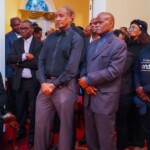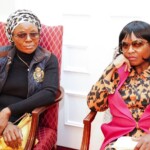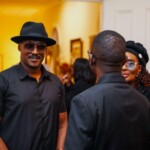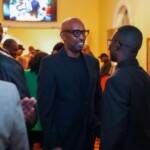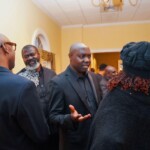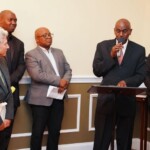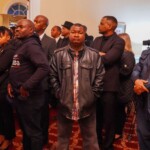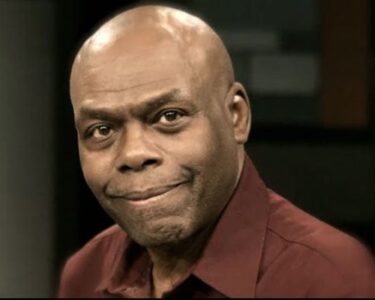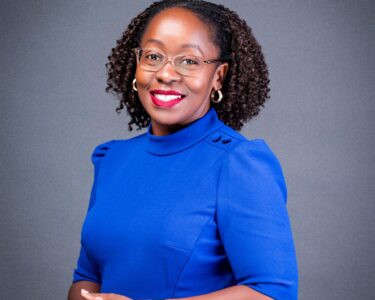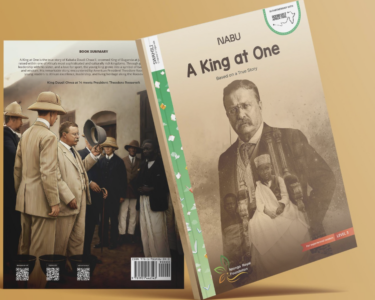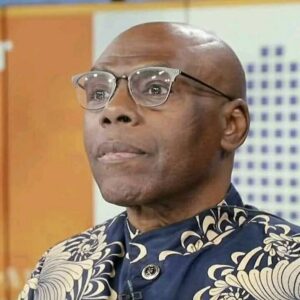 On Wednesday morning, March 26th, I got an early call from one of the community leaders in the DMV area of greater Washington. A rumour had started circulating that my dear friend, Ndugu Shaka Ssali, was no more. In panic, especially since I had spoken to him just a few days earlier, I quickly picked up my phone and called his number. It went straight to voicemail. That was unusual. Shaka always said his gadget was friendly whenever he was available.
On Wednesday morning, March 26th, I got an early call from one of the community leaders in the DMV area of greater Washington. A rumour had started circulating that my dear friend, Ndugu Shaka Ssali, was no more. In panic, especially since I had spoken to him just a few days earlier, I quickly picked up my phone and called his number. It went straight to voicemail. That was unusual. Shaka always said his gadget was friendly whenever he was available.
Having failed to reach him via what he would have called a “telephone link,” I tried Paul Ndiho, a comrade and close confidant of Dr. Shaka, hoping he might pick up and confirm or deny what I was hearing out of DC. He too didn’t answer. So I called Shaka’s phone again, and on the third attempt, someone finally answered. It was Malaika. I recognised her voice instantly—Shaka had told me she was helping write his autobiography and that I should connect with her.
She, too, recognised my voice from past conversations. Then, softly, she broke the news: paramedics had rushed Dr. Shaka to the hospital, but unfortunately, Ndugu had died on the way.
The news left me devastated. I had interacted with this man nearly every week during my time in the United States.
First encounters
I first encountered Shaka as a fan. His radio show aired on Sanyu FM, and he co-hosted Voice of America’s Daybreak Africa alongside his close friend Paul Sisqo. I admired his deep grasp of issues, his bold African accent, and his fearless interviewing style, especially during the Liberia and Sierra Leone civil wars. I vividly recall his interview with a rebel general known as “Mosquito,” where he cheekily asked why someone would choose to call themselves both a general and a mosquito.
A bond forged in media
We would later meet in 1999 and become friends. I had the privilege of hosting him for the first time in Uganda on the WBS Television flagship show Issues at Hand. That encounter laid the foundation for a bond that lasted many years. We exchanged ideas almost weekly, first while I was still in Uganda, and later when I relocated to the US.
After my training stints at BET and CNN, it was Shaka who recommended me for admission to Boston University for my Master’s degree. When I did consultancy work for NTV in 2011 on Decision Uganda, and later in 2016 with NBS on Uganda Decides, it was Shaka I requested to be my first special guest—right after he had moderated the 2016 presidential debate in Kampala. That show laid the foundation for Frontline, the NBS flagship programme I co-hosted with Charles Odongtho.
Integrity and storytelling
His storytelling was unmatched. I remember one story he told about a trip to Africa where a political leader, through handlers, tried to arrange a detour for Shaka to “help himself.” But he politely declined. He was well paid at VOA and saw no reason to compromise his integrity as a journalist.
Over the years, he introduced me to many quirky but insightful phrases. “Foreign aid,” he would say, whenever he was looking for a contact to link him to someone—or jokingly hinting at a needed favour. And when talking politics, he coined “groceries” to describe politicians or people who were easily bought—those for sale to the highest bidder. These phrases, laced with humour and wisdom, became part of our shared language.
Loss
After his retirement from VOA on May 20, 2022, Shaka and I started Talking Legacy. A podcast. An African focused show. Something to carry on his work. We tossed around names—he liked Africa Talks—and he even connected me with producers planning to launch a YouTube channel. Unfortunately, that dream was never realised. He was battling health problems and was scheduled for surgery, waiting for his platelet count to improve. The complications from that operation would sadly lead to his passing months later.
A scare and a laugh
I remember one earlier scare when a rumour falsely declared him dead. I called immediately, and Ndugu picked up. In his unmistakable Kabale accent, he said, “If it’s not me, then perhaps you’re speaking to a ghost!” We laughed. He was genuinely touched by the flood of well-wishes and messages from fans around the world.
Honouring him while alive
It was after that that I suggested we celebrate him while he was still with us. I asked if he’d accept recognition at the upcoming UNAA Convention in DC, knowing he wasn’t a fan of posthumous awards. He gave his blessing. I then reached out to Deo Kawunde and the UNAA leadership. It gave me great joy when, during our convention at the Gaylord Hotel last year, we honored and celebrated Dr. Shaka Ssali.
A humble departure
After his death, I received countless calls from Ugandan journalists and media houses—Twitter Spaces hosted by Solomon Serwanjja, NTV’s Sudhir Byaruhanga, and even former Reuters stringer Edmond Kizito. Others wanted details about funeral arrangements and where Shaka would be laid to rest. A funeral committee was formed, and even relatives from South Africa reached out to explore how best to honour him.
But in our many conversations, Ndugu had been clear. He preferred simplicity. No fanfare. He’d often say, “When my time comes, I’ll be ready to go and interact with my ancestors.” He never wanted a state funeral.
So it was difficult—watching the conflicting opinions. People wanted to celebrate him as a hero, with a grand sendoff. But Shaka had chosen cremation, a practice that, while foreign to many of us, was his personal wish.
Lessons from Shaka
I choose to celebrate Shaka and how I remember him—my friend, mentor, and confidant. He taught me not only how to pursue greatness but how to remain grounded, authentic, and humble. He encouraged me to read widely and always stretch myself intellectually.
“Ndugu,” he’d say, “success has many friends, but failure is an orphan. Always pursue intellectual liberation— your books and your papers will open doors.”
He gave me a phrase I often used to describe him: “Don’t be a Nyampara of sorts.” He believed in fairness and consistently challenged leadership across the continent to do better. In every interview, he pressed the critical question: “Are we citizens or subjects?”
Final journey
Dr. Shaka Ssali was cremated on Wednesday, April 9th, in Alexandria, Virginia. As per his wishes, half of his ashes will be scattered on the Potomac River, and the remainder taken to his ancestral home in Igabiro, Kabale—where the Kabale Kid hailed from.
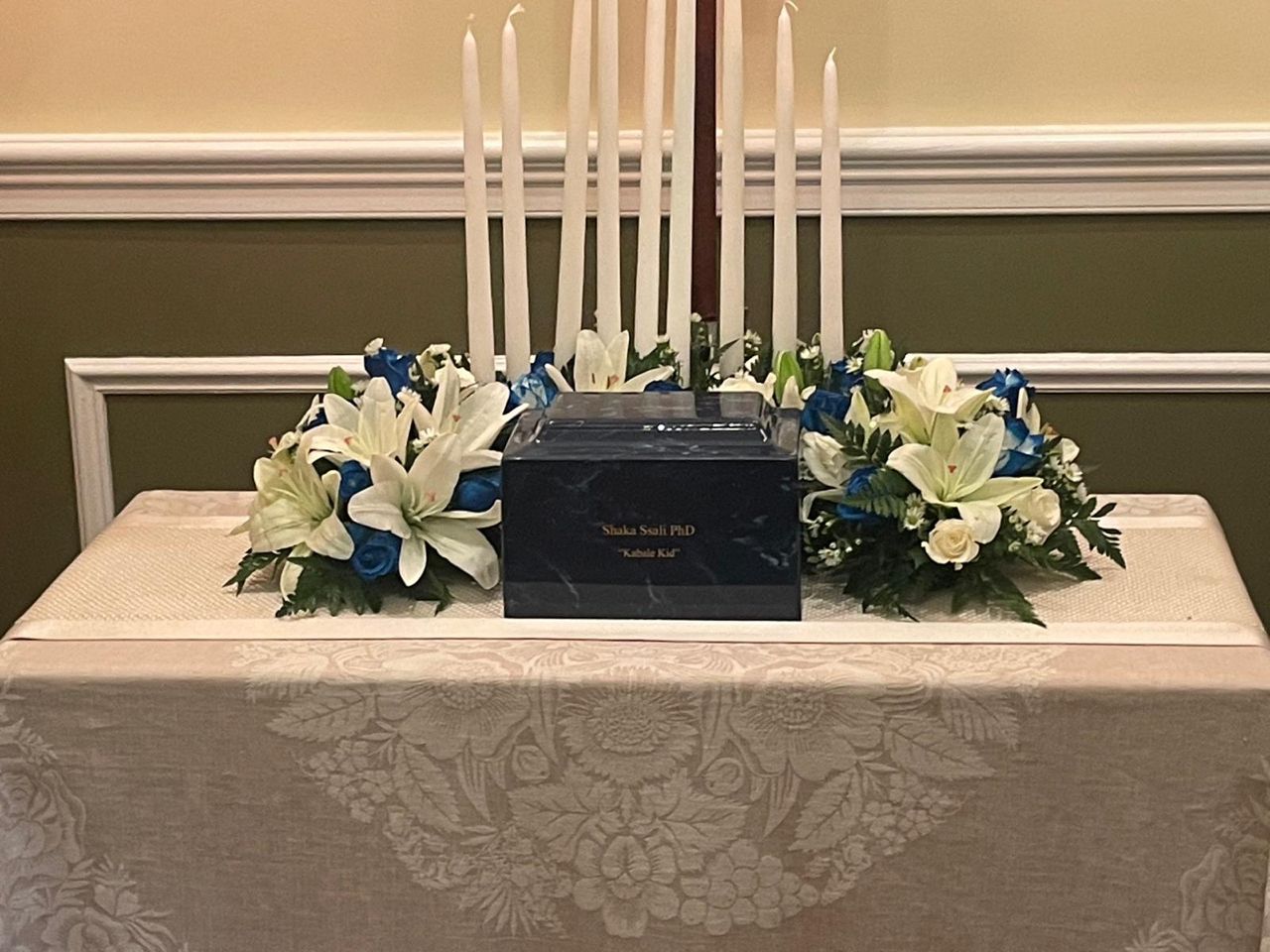
I will deeply miss that contagious laughter and the baritone voice that became a staple in so many homes through Straight Talk Africa. Many made the journey to Virginia to celebrate his life.
And so, I too choose to celebrate. I will remember his good deeds. His voice. His vision. Shaka is survived by his son, Heza.
Fare thee well, my friend. Until we meet again.
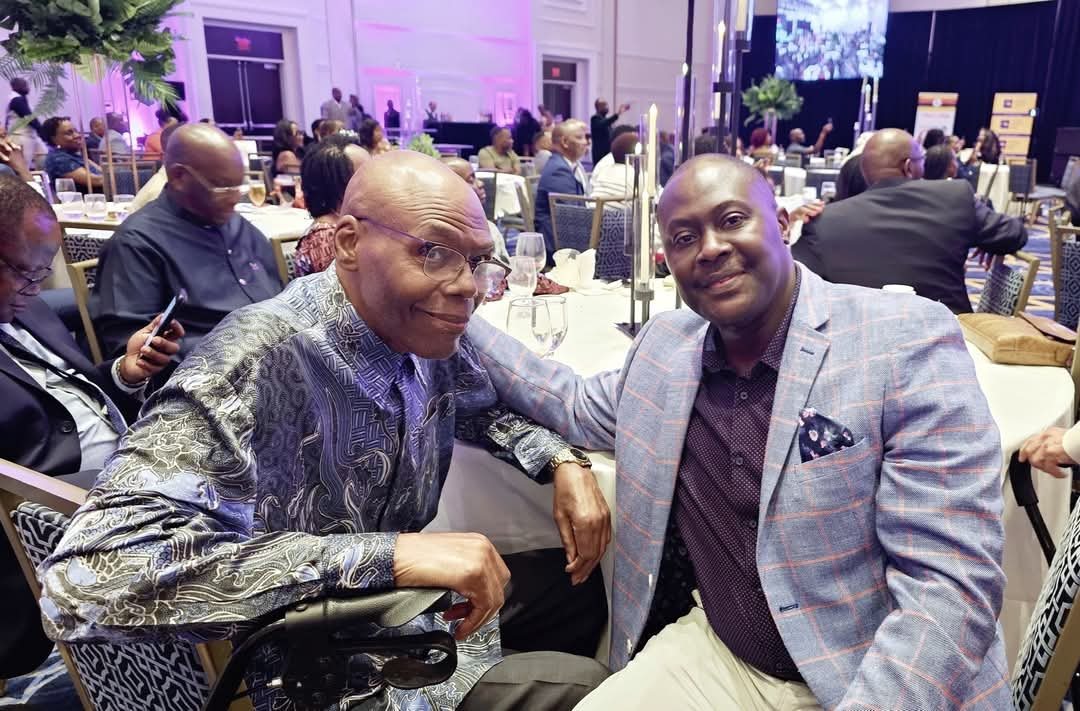
Photohighlights from the Farewell of Nduggu Shaka Ssali from the DMV community



